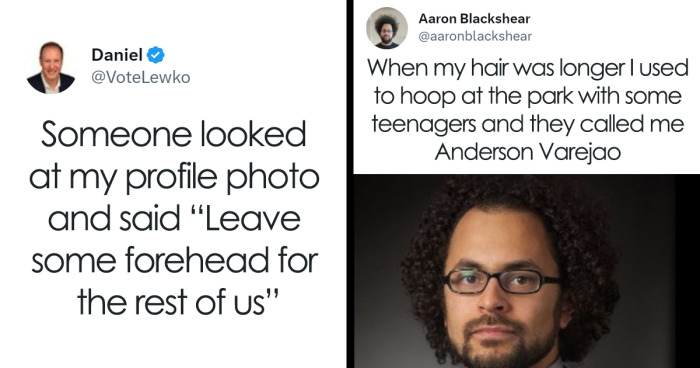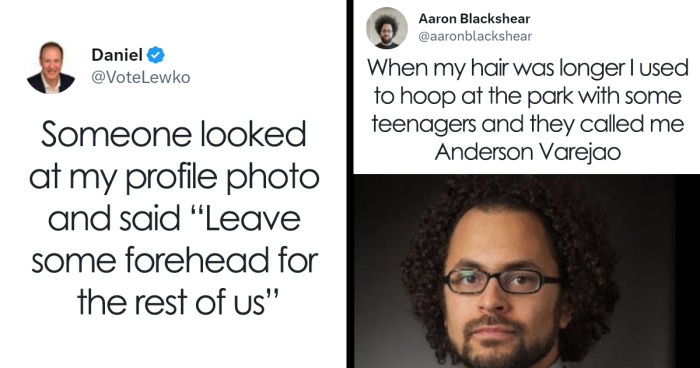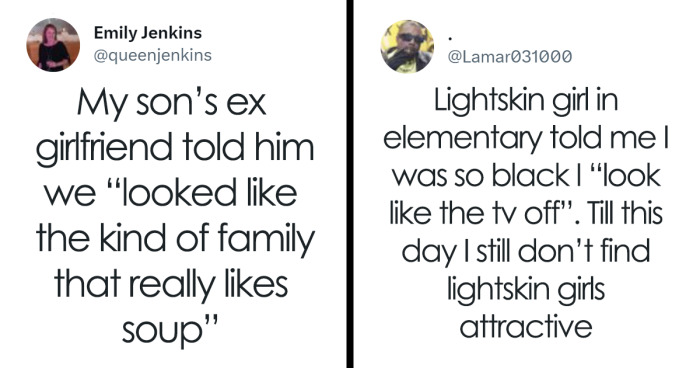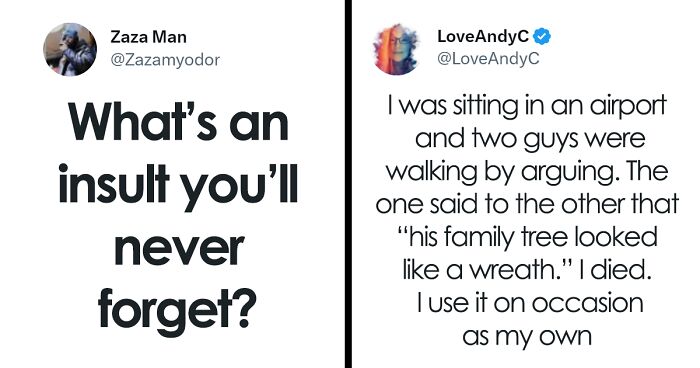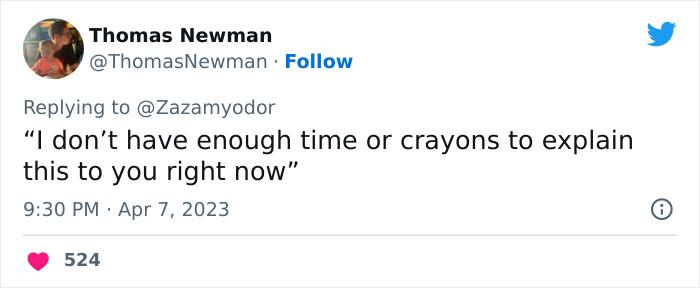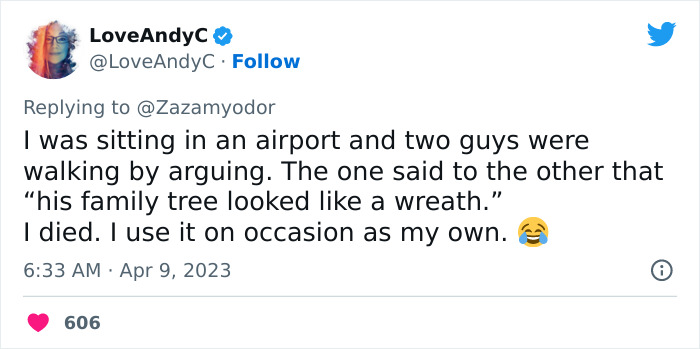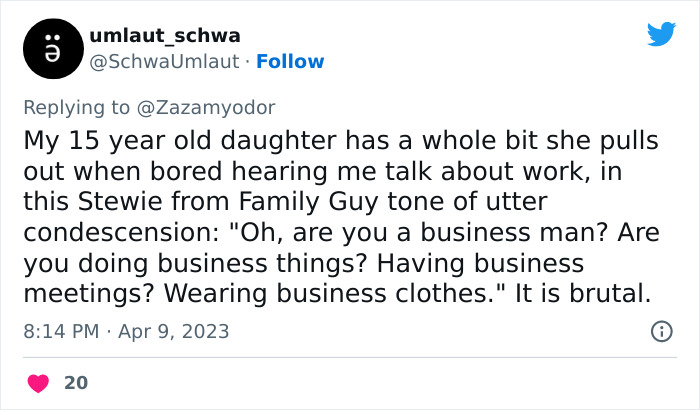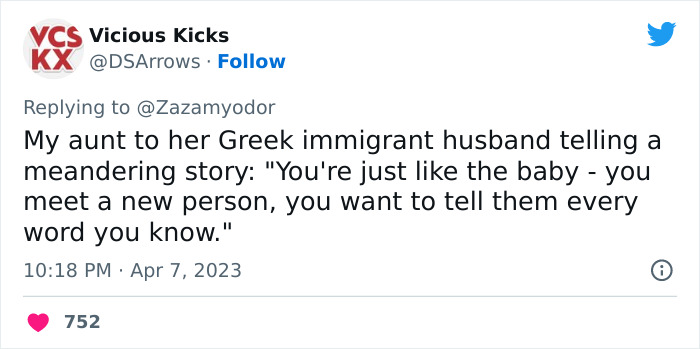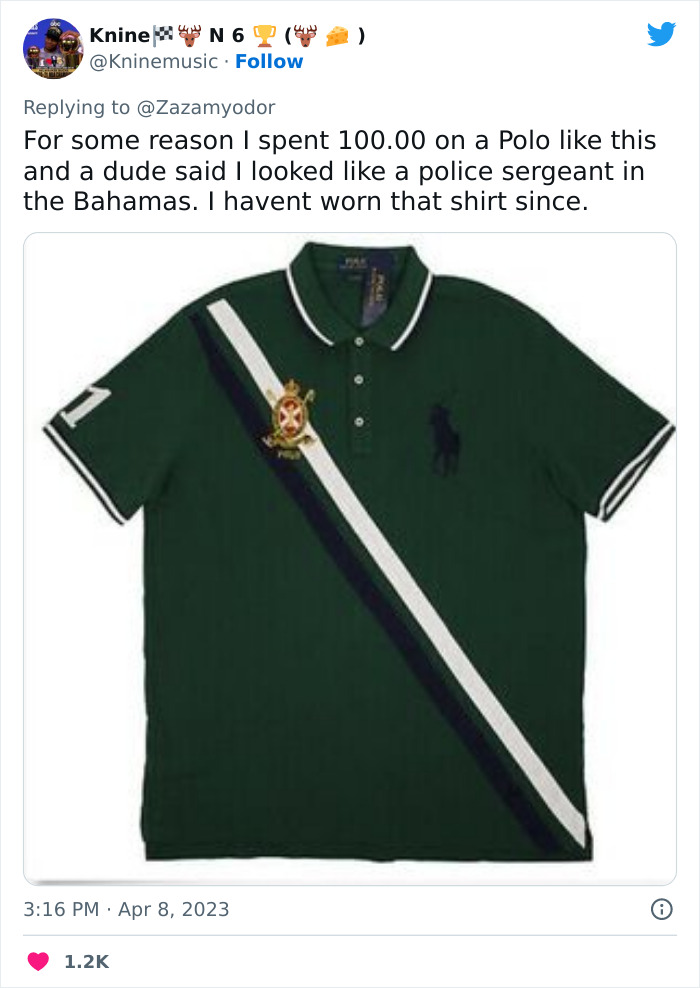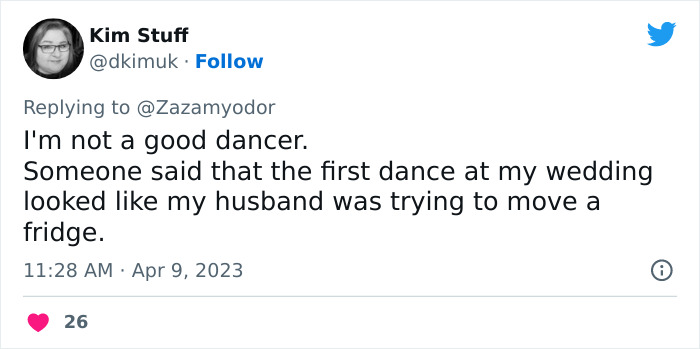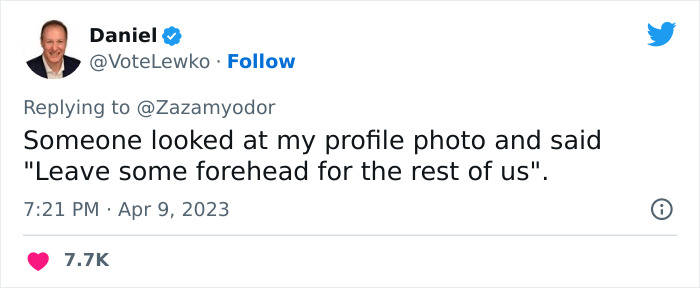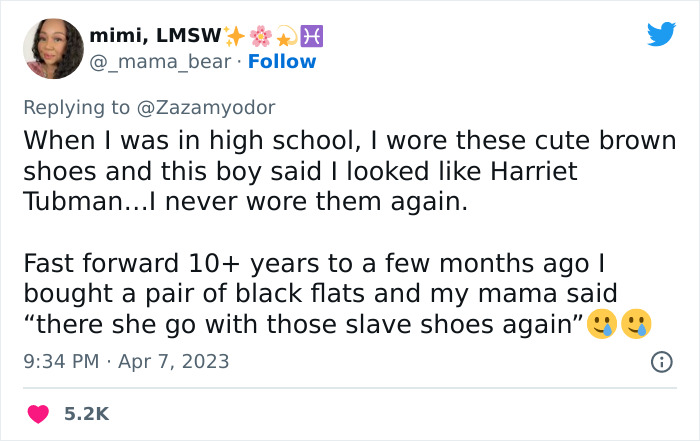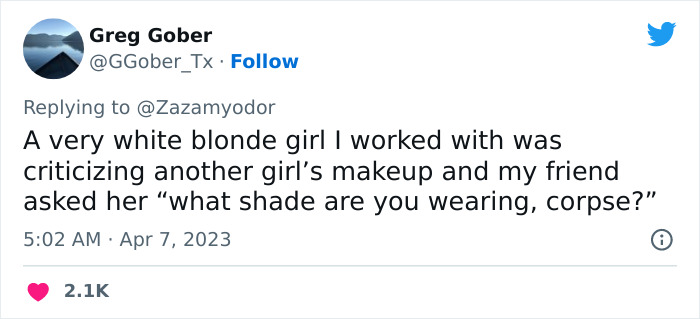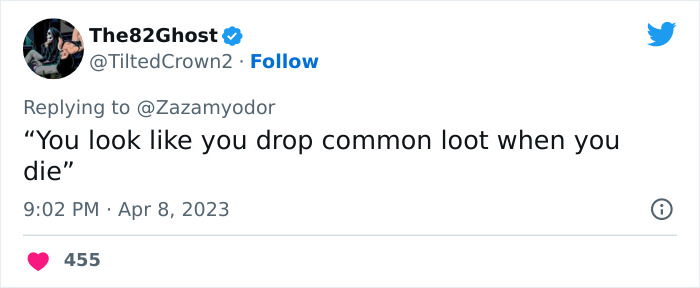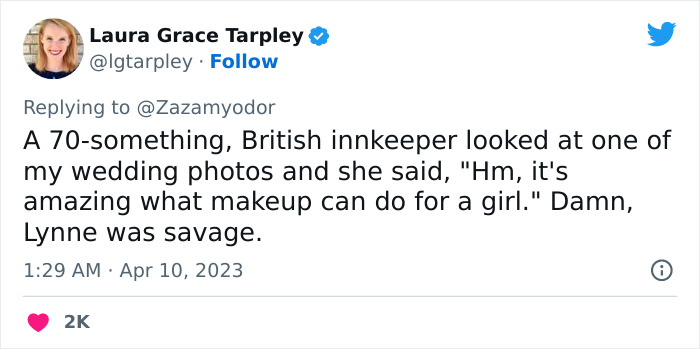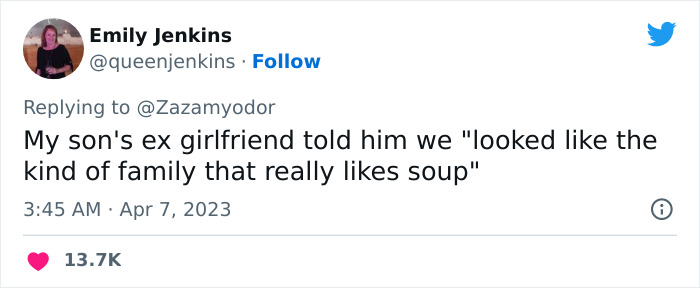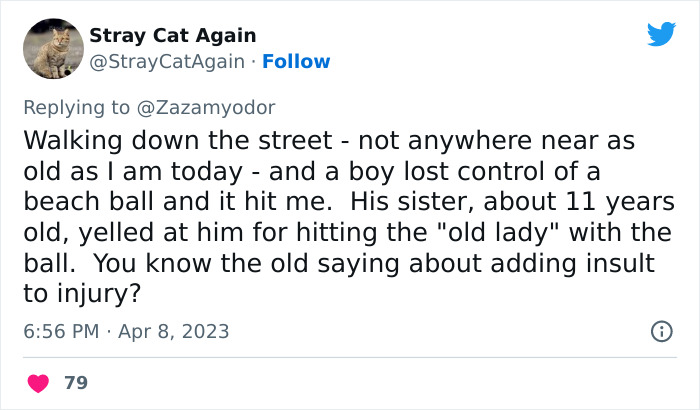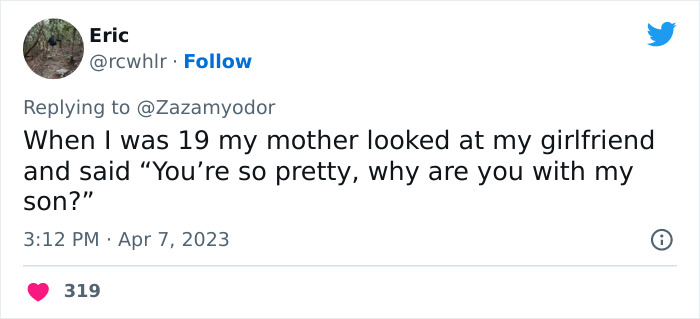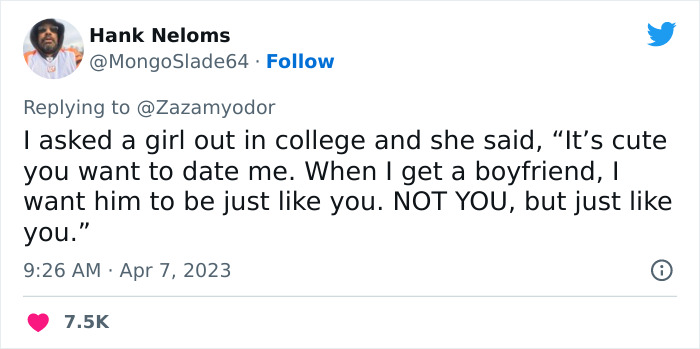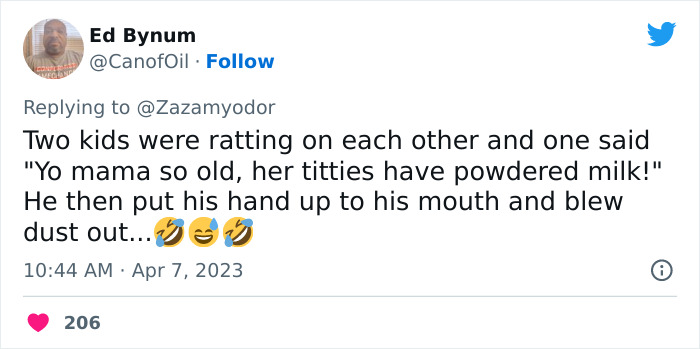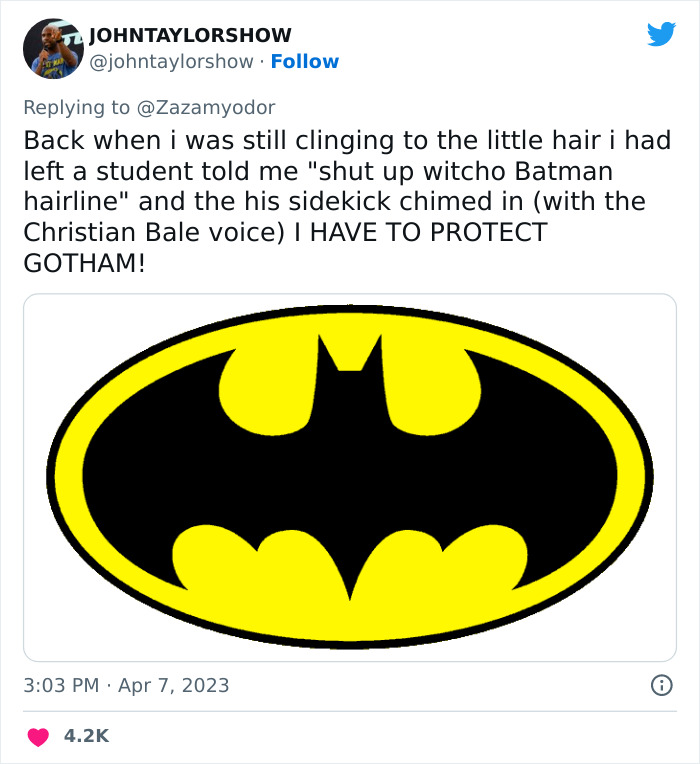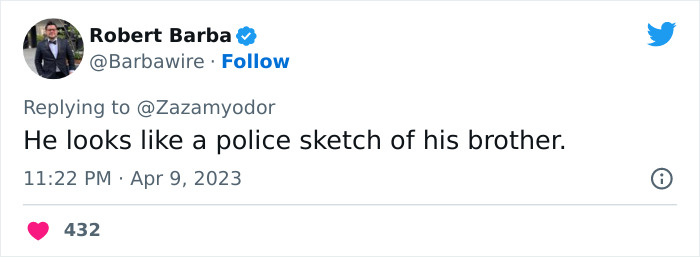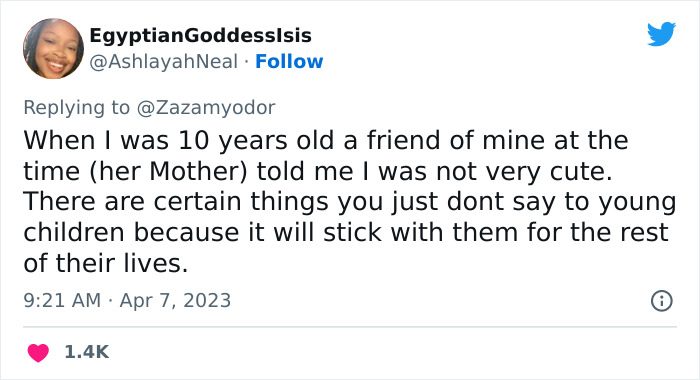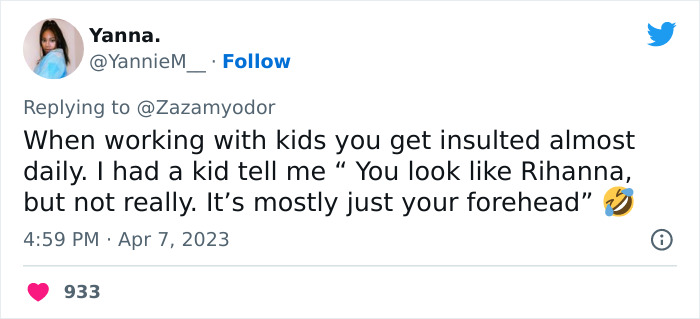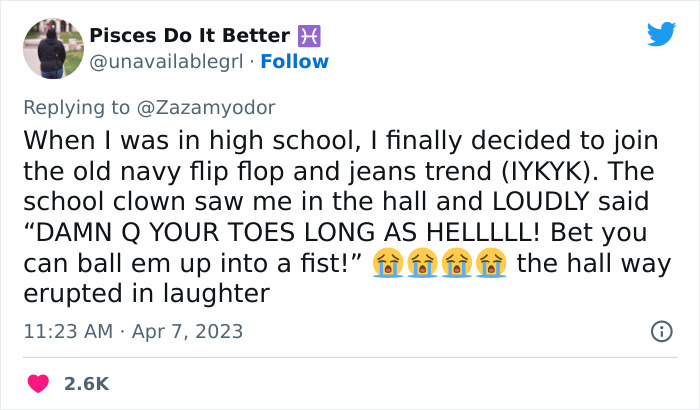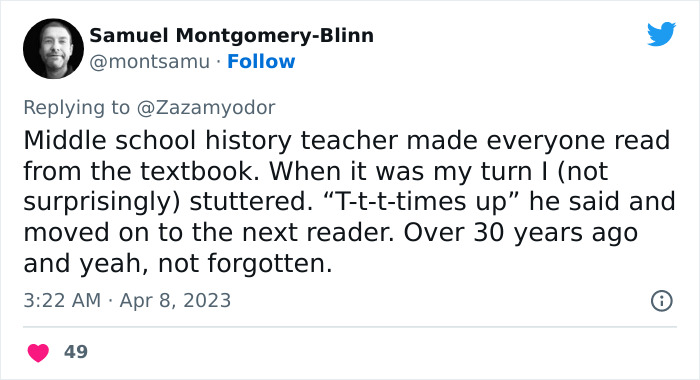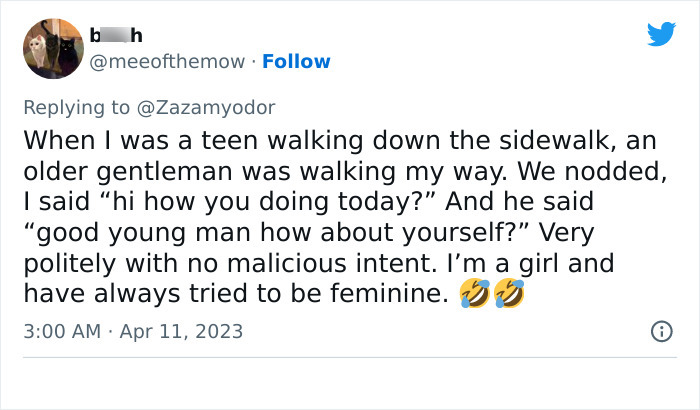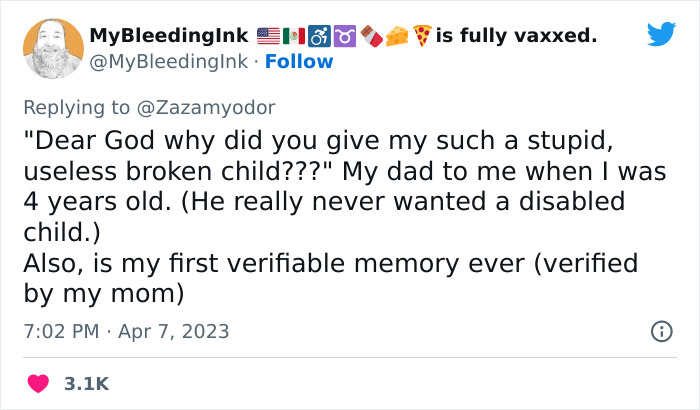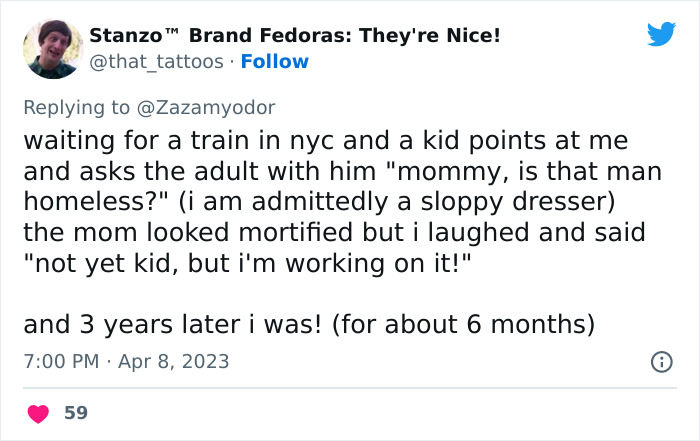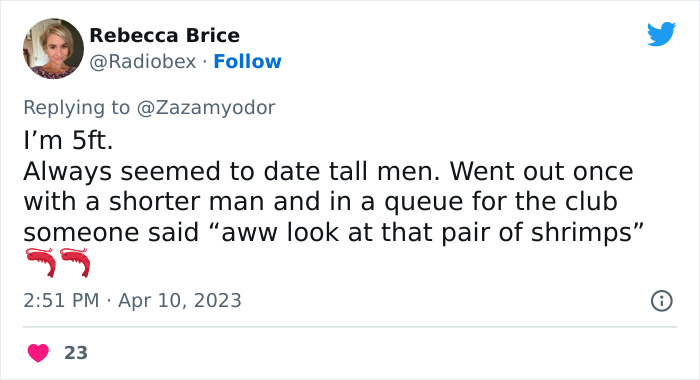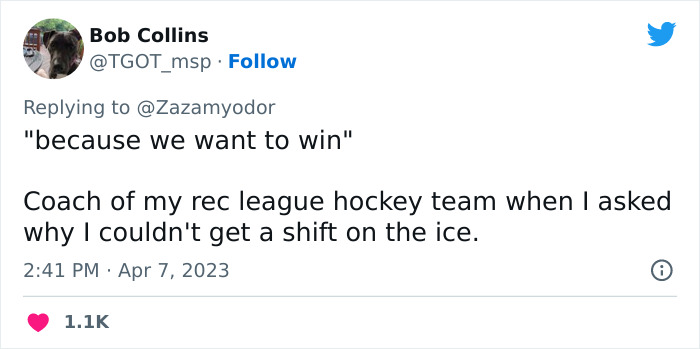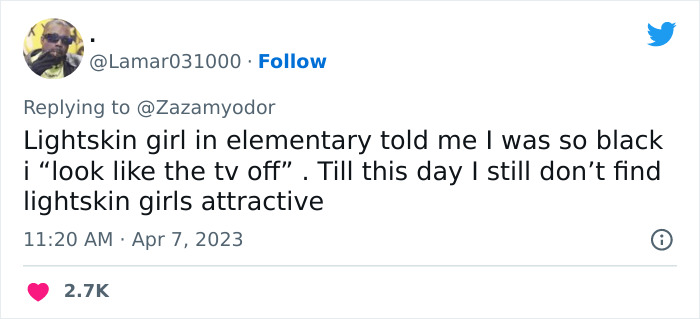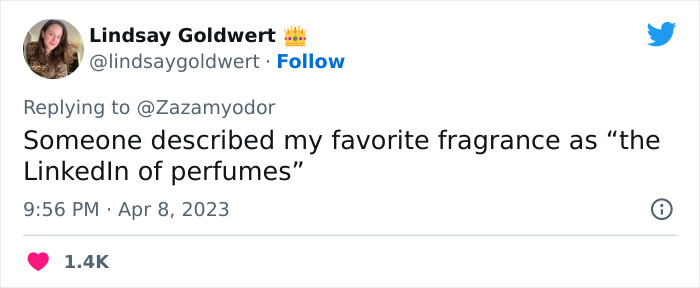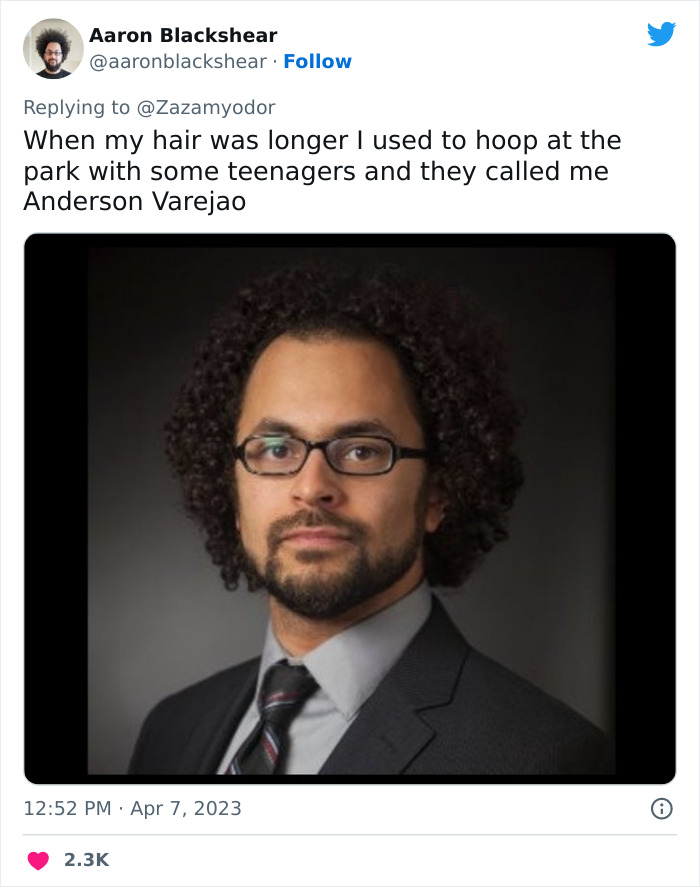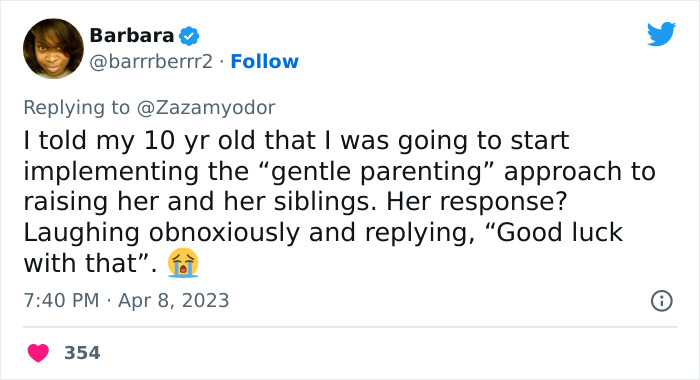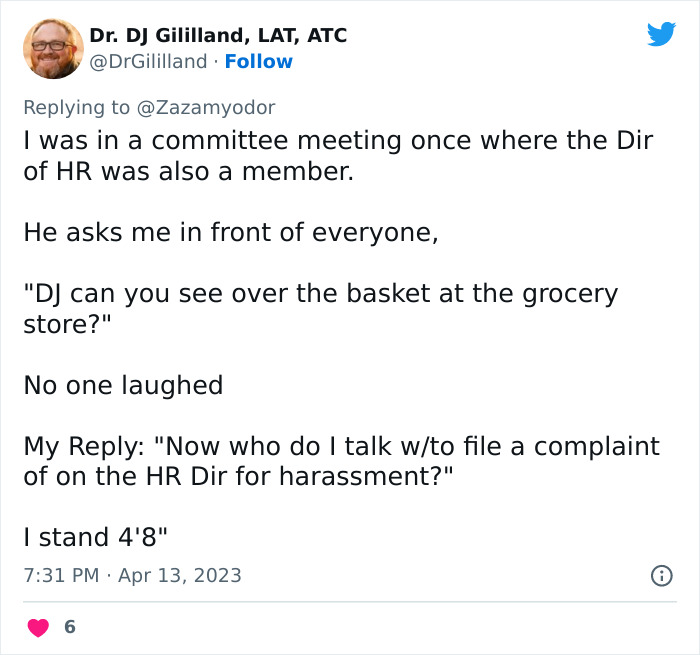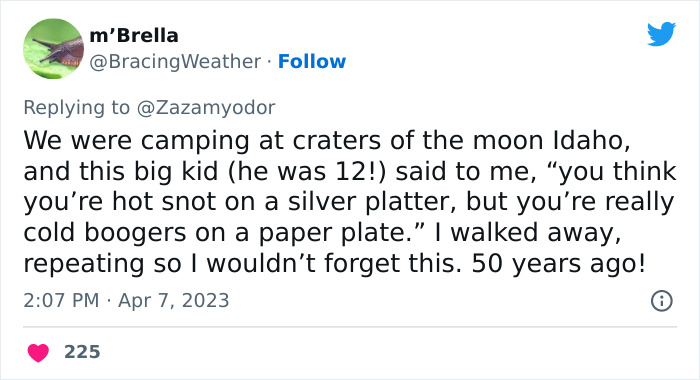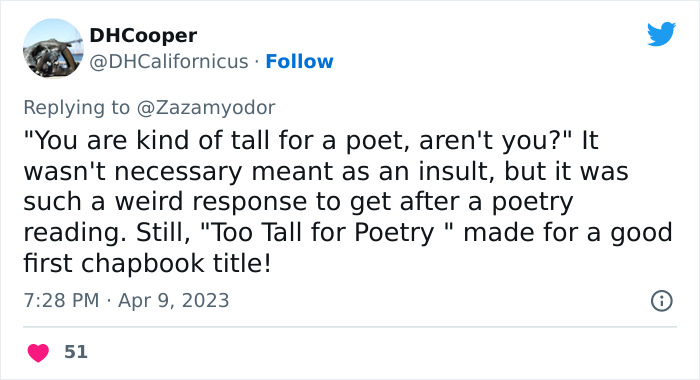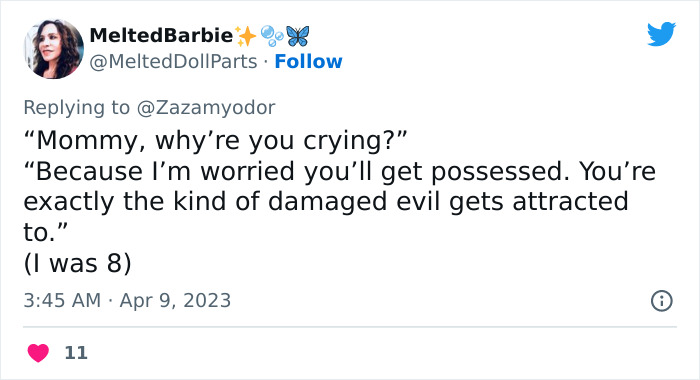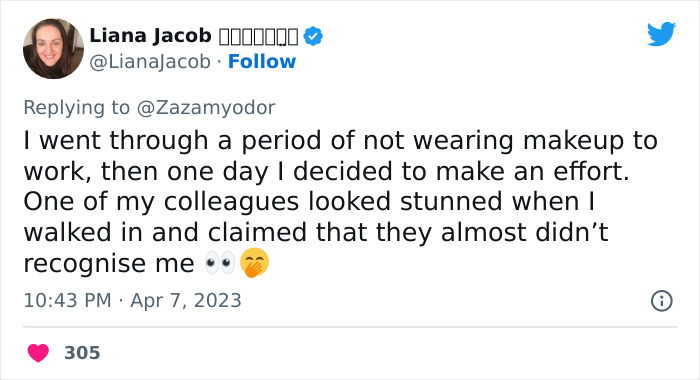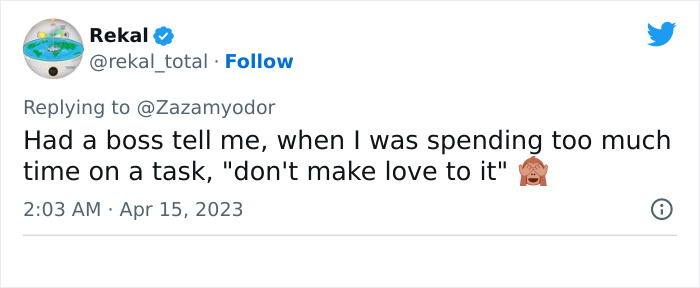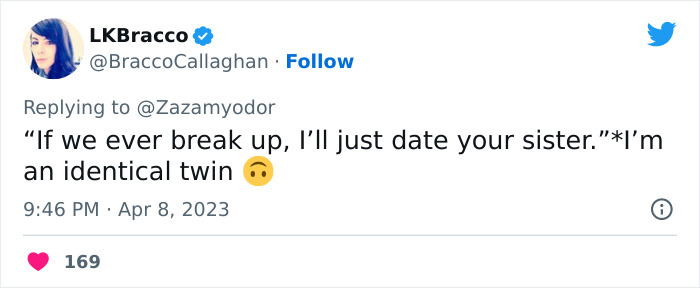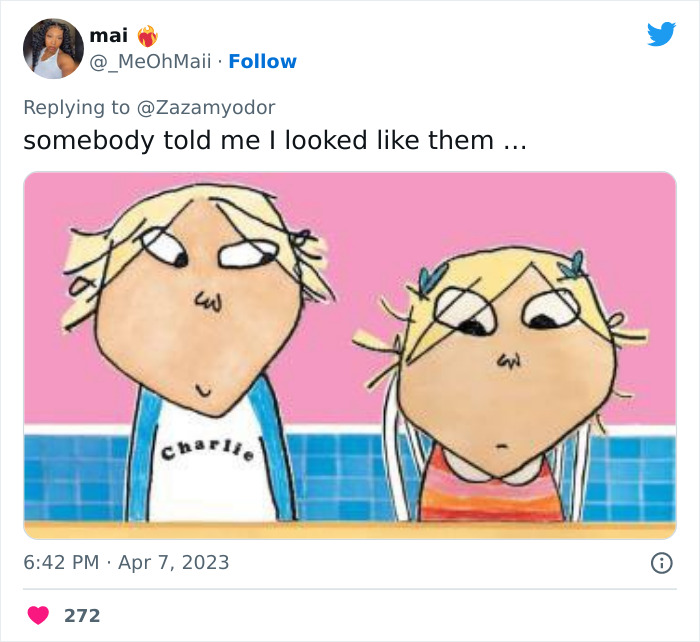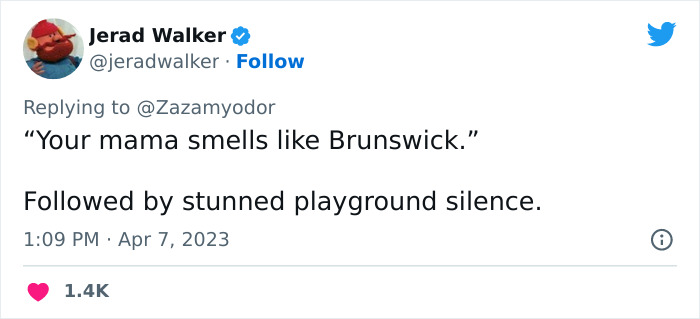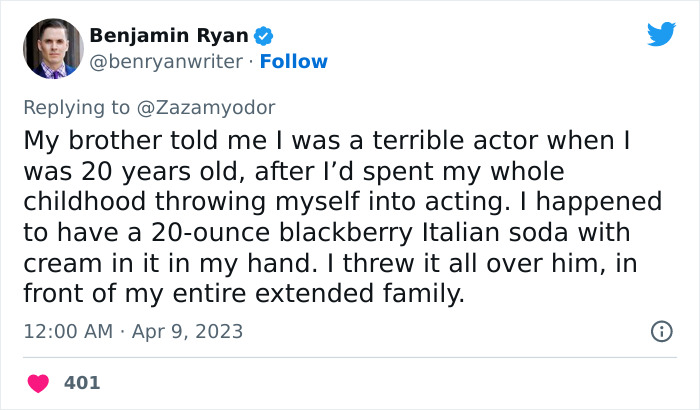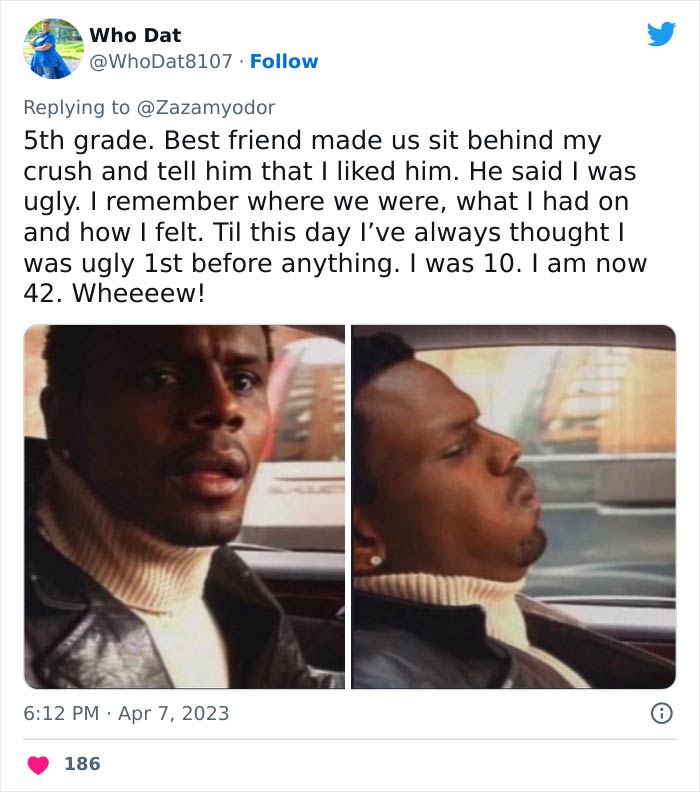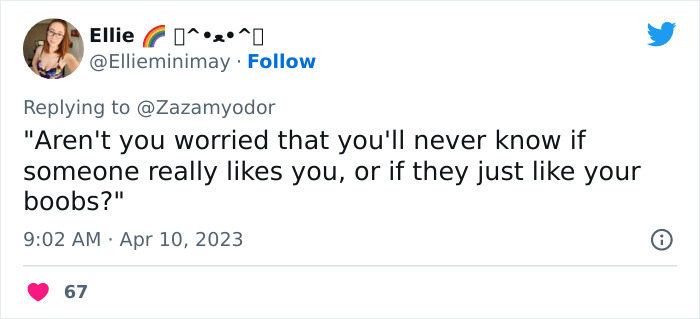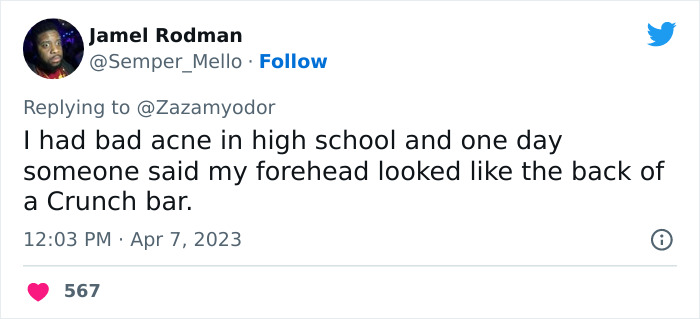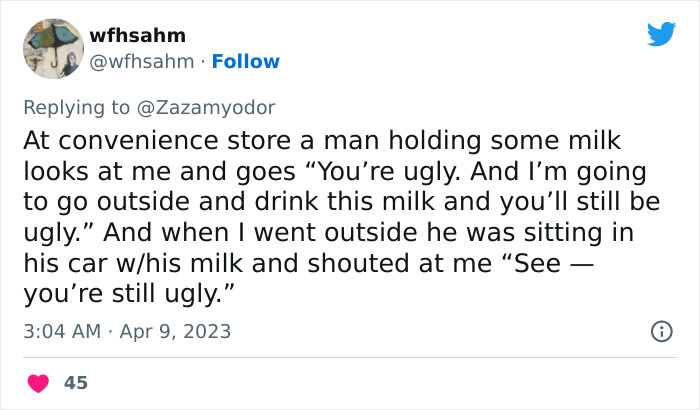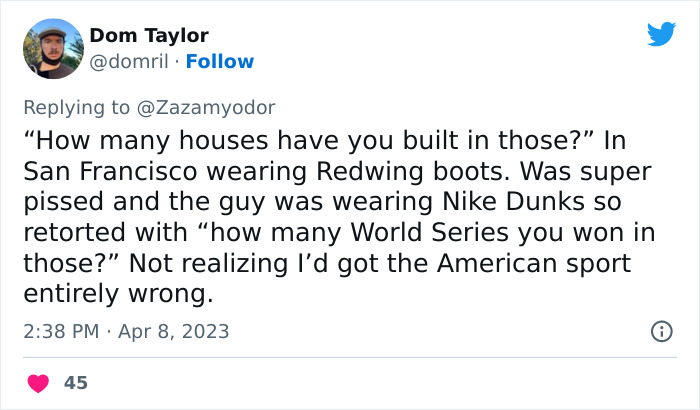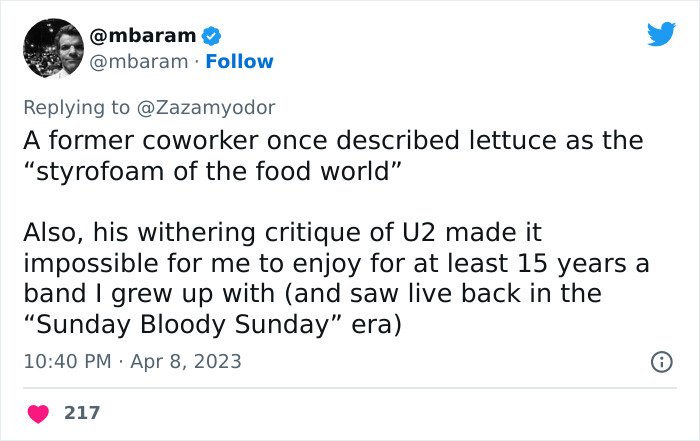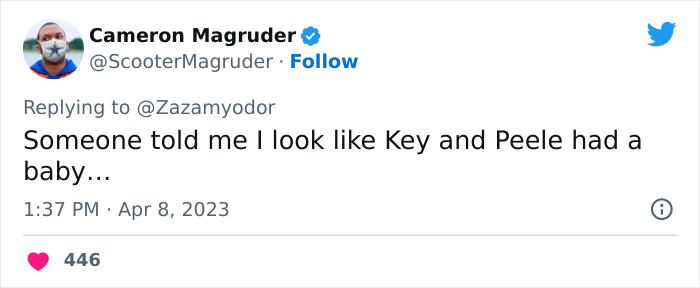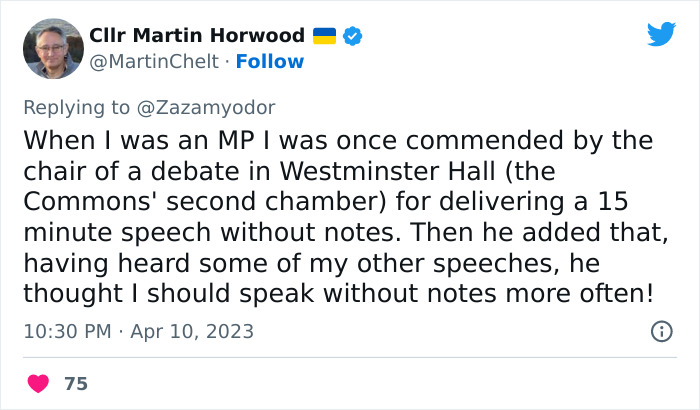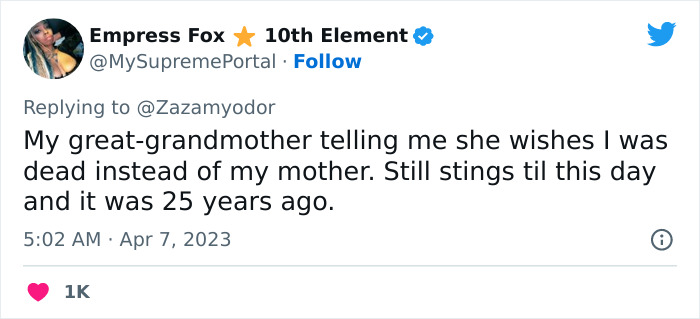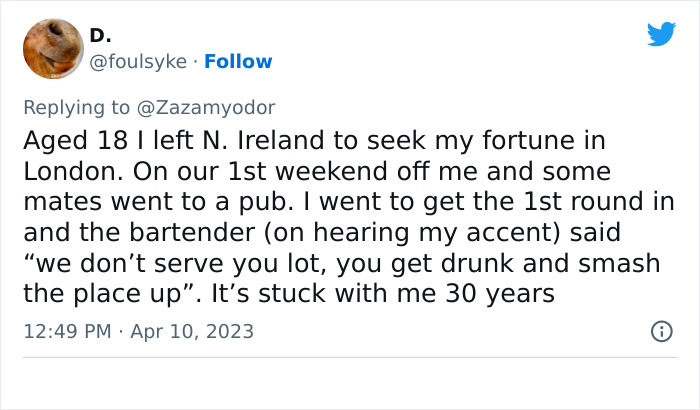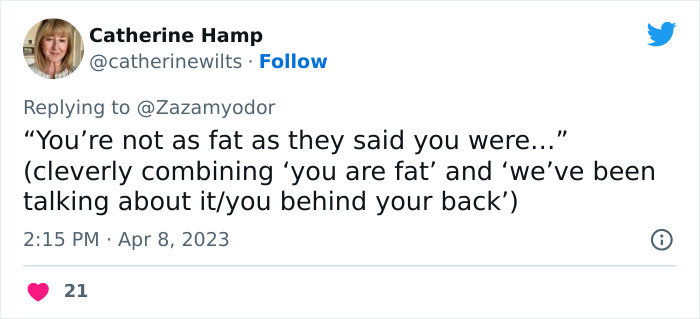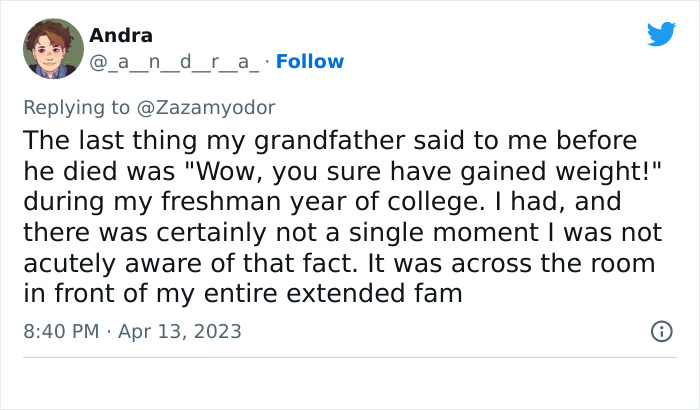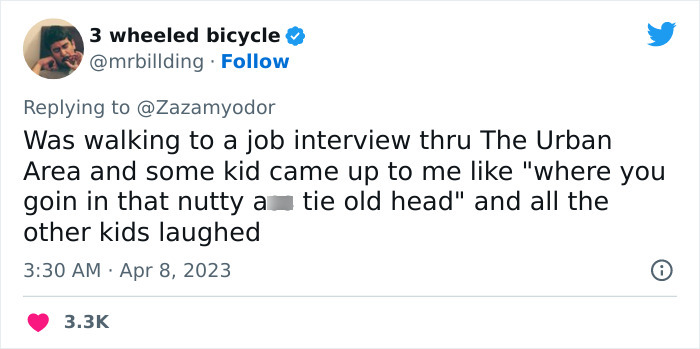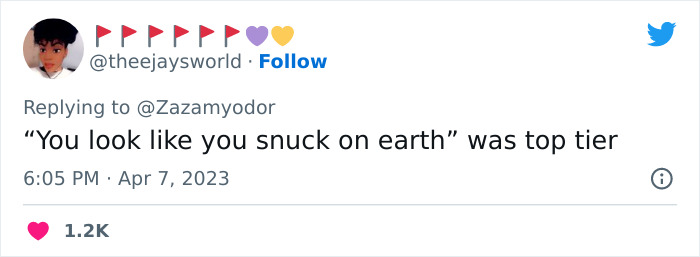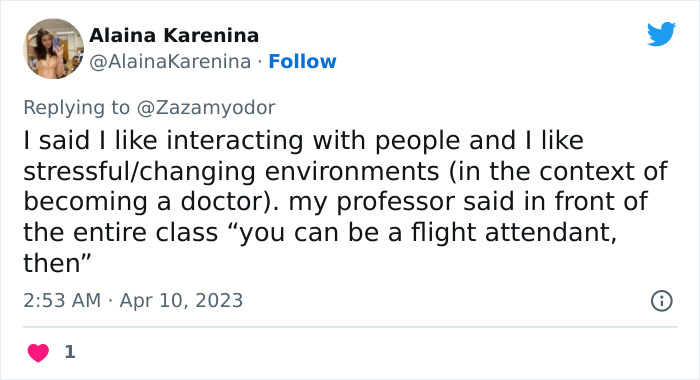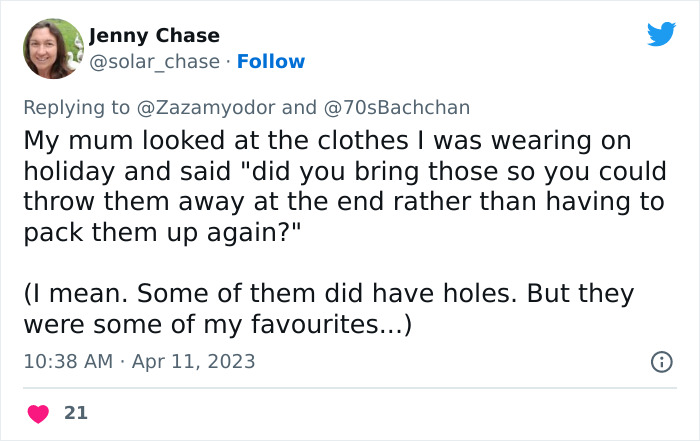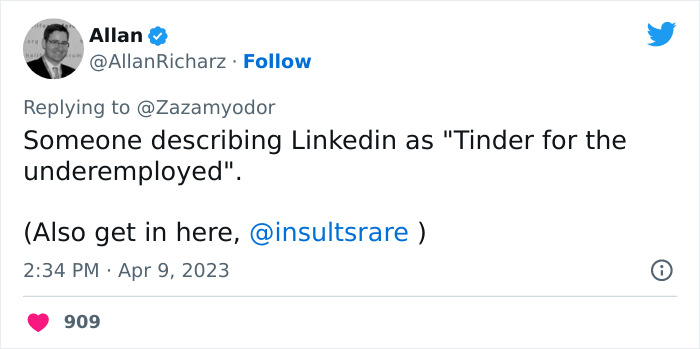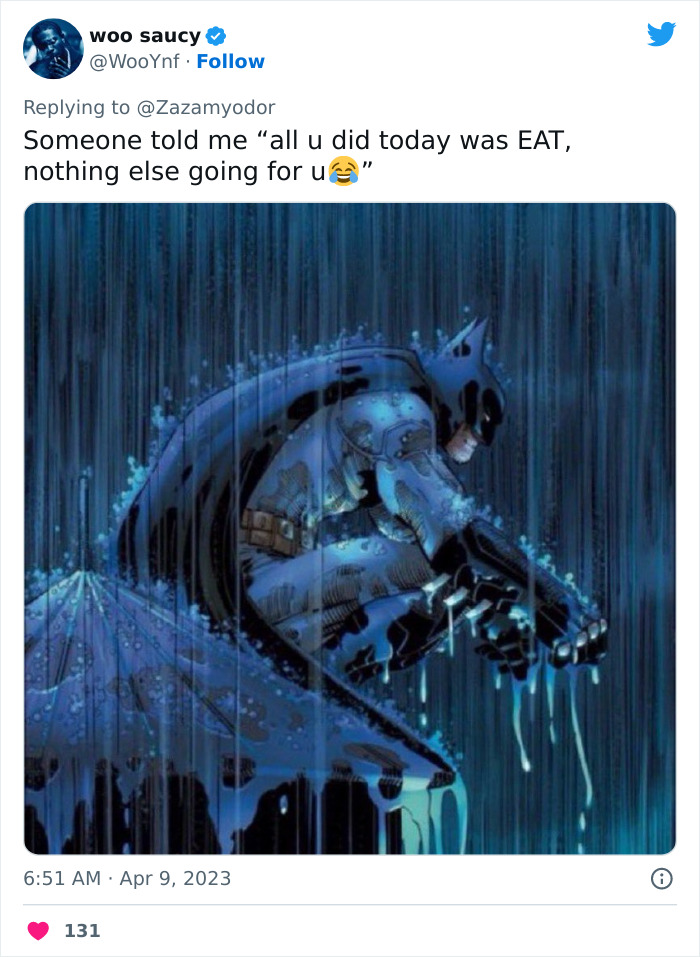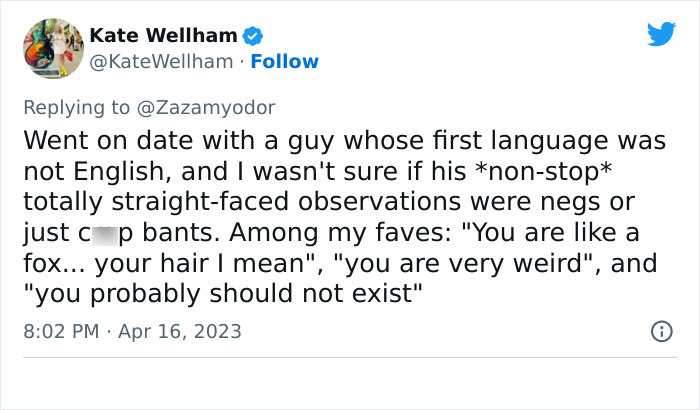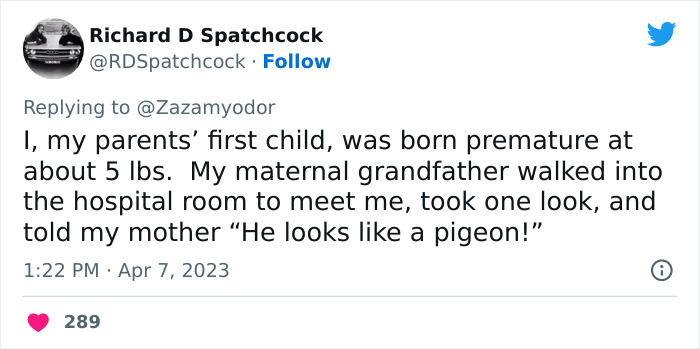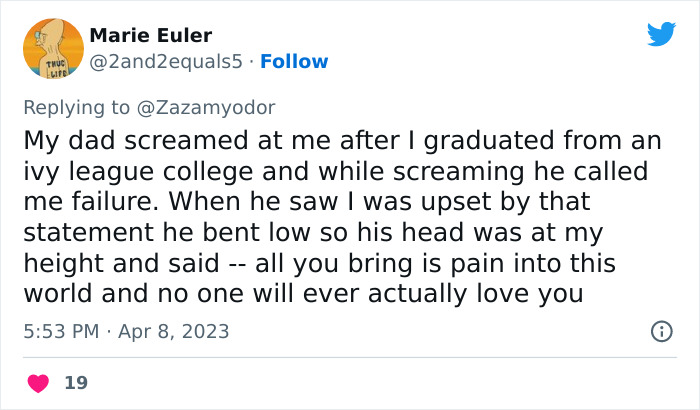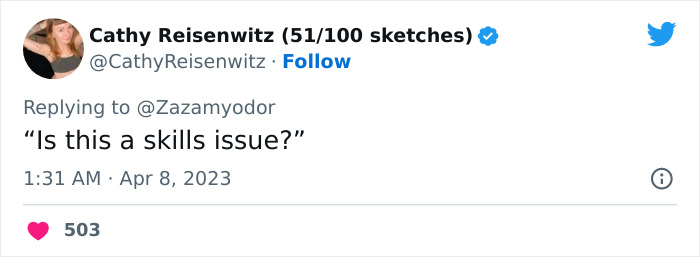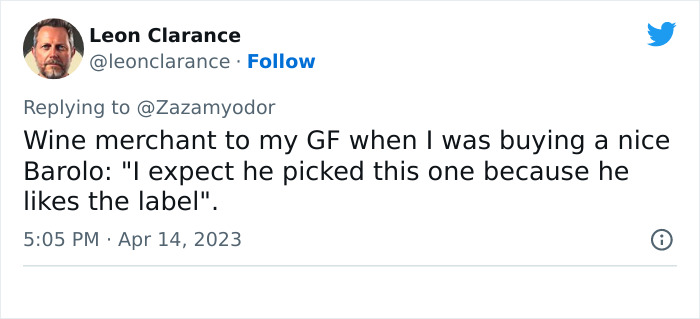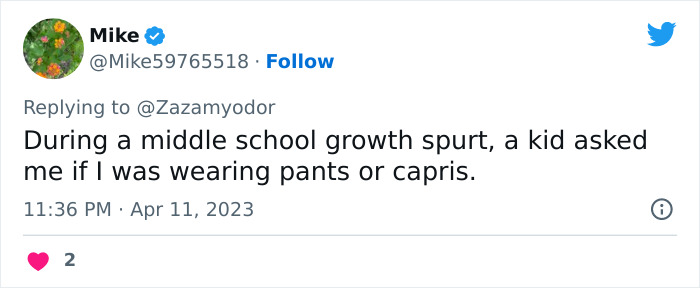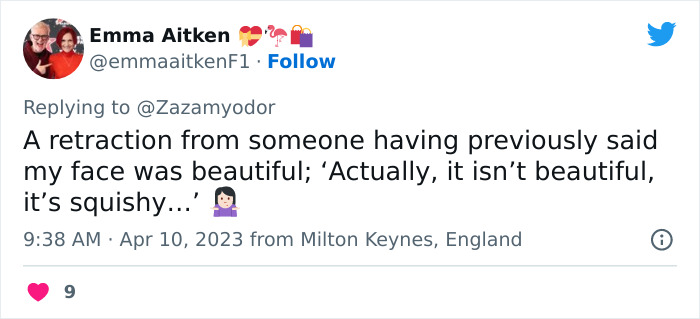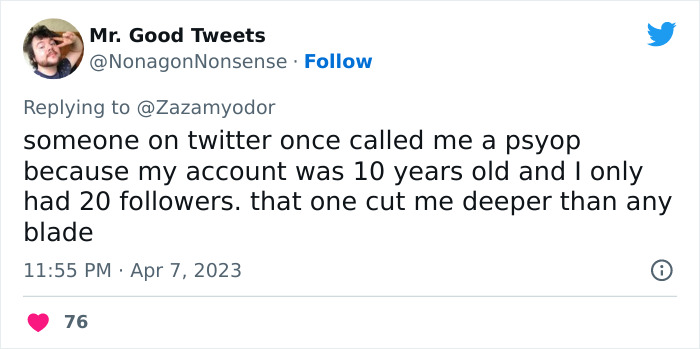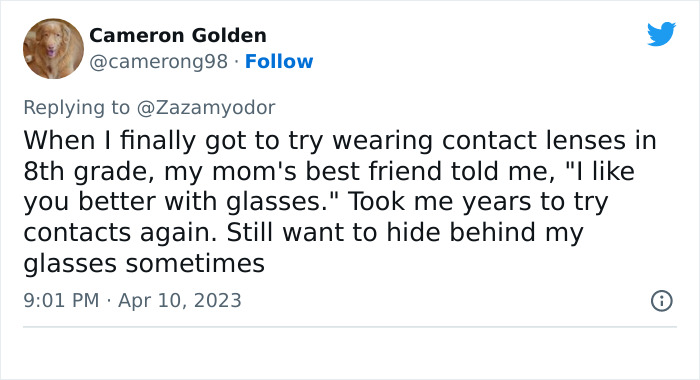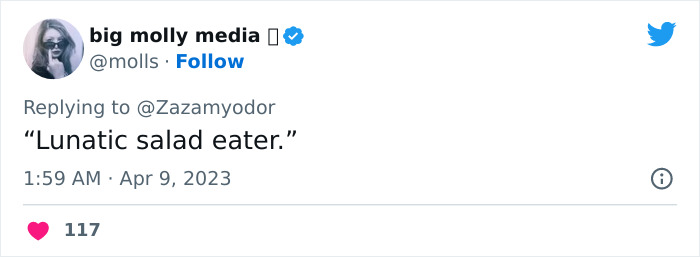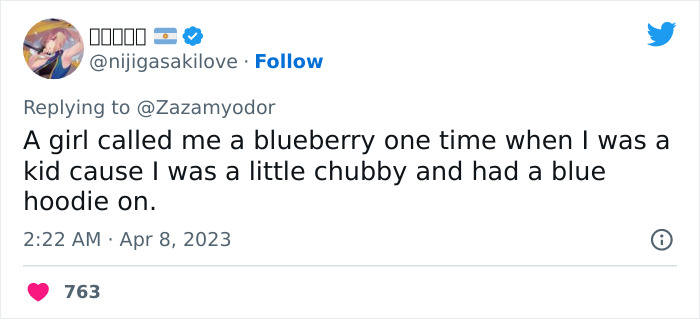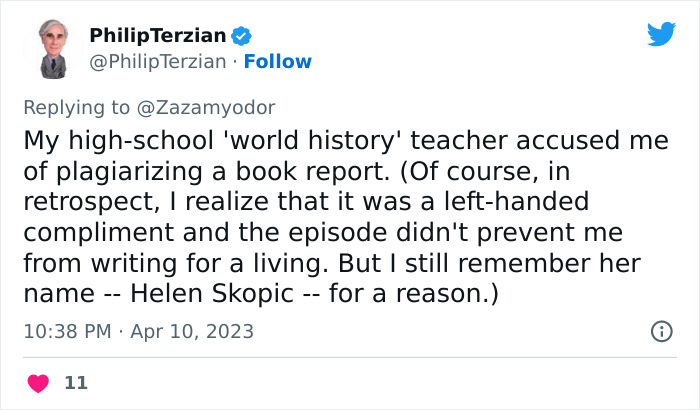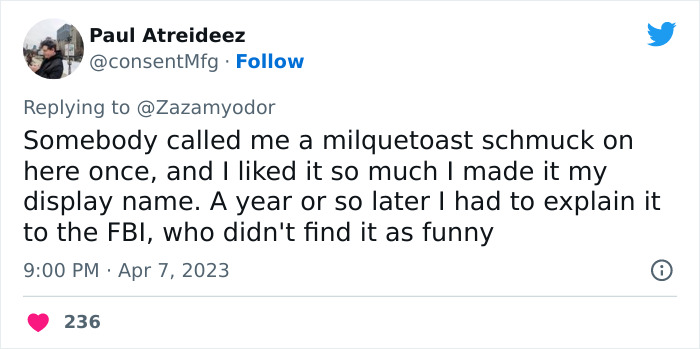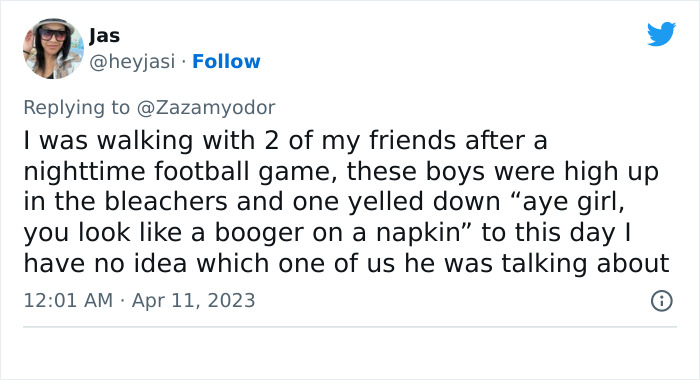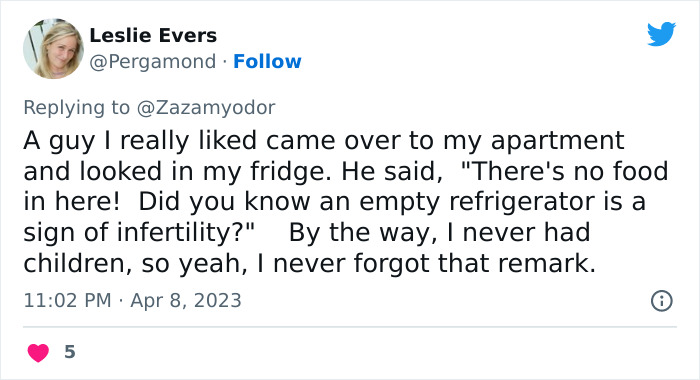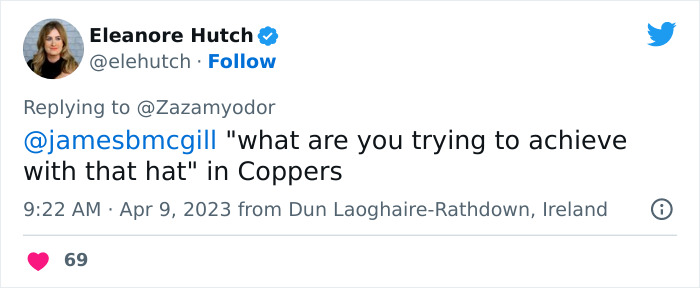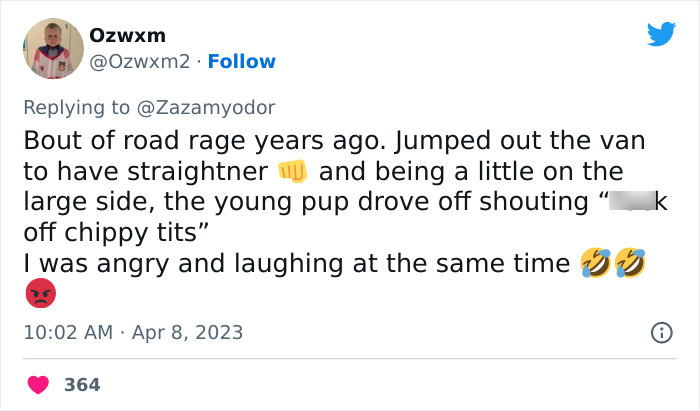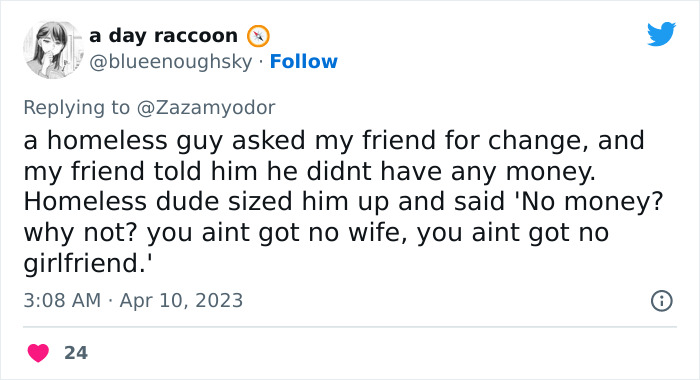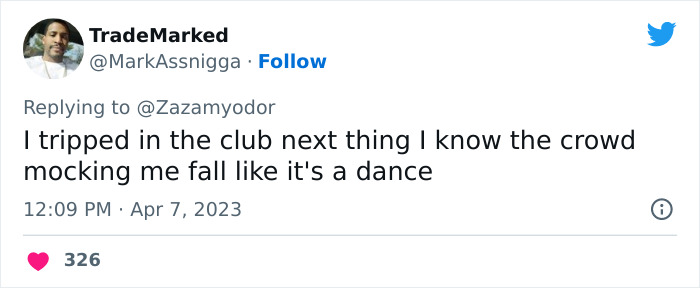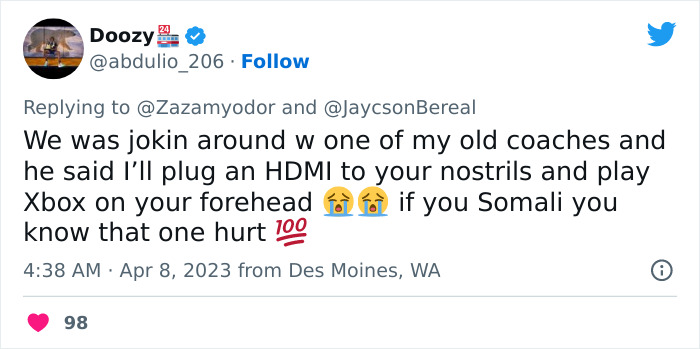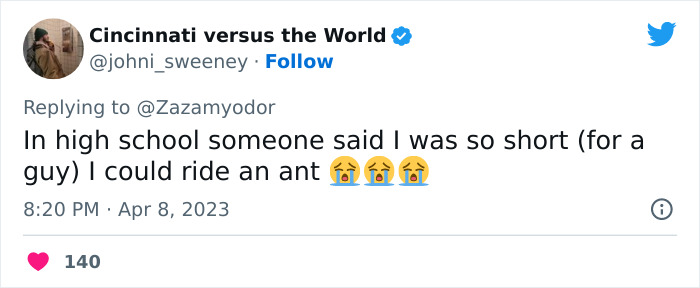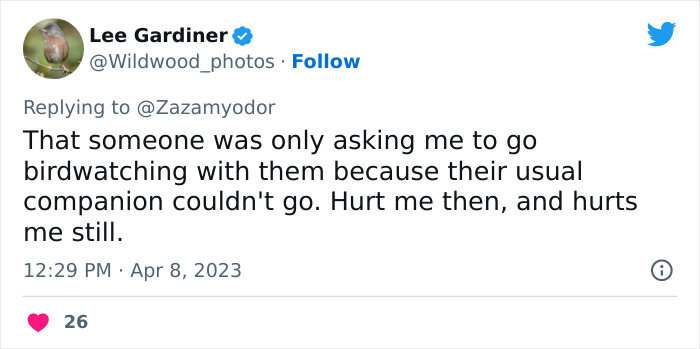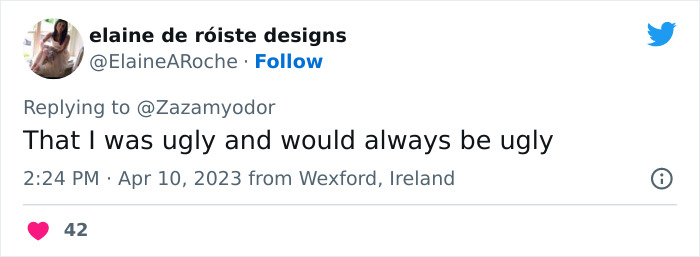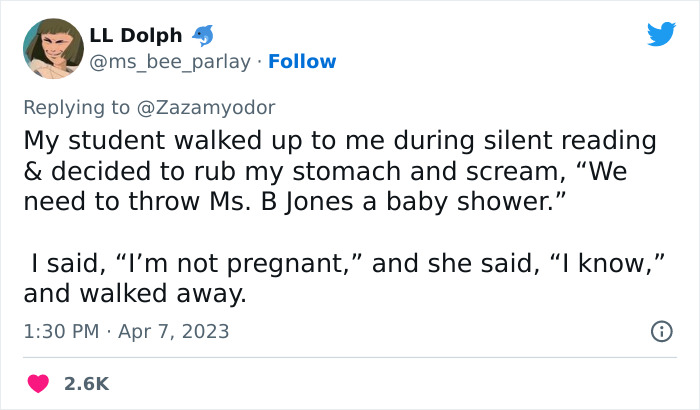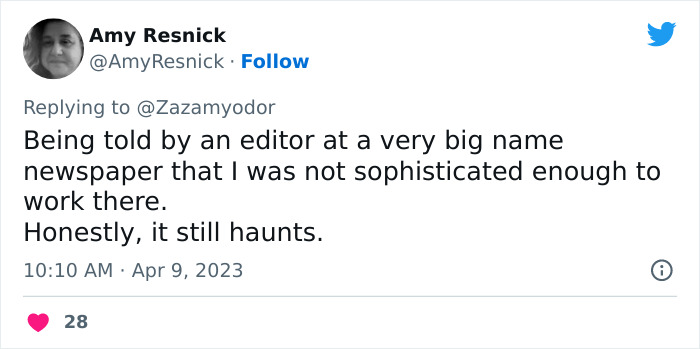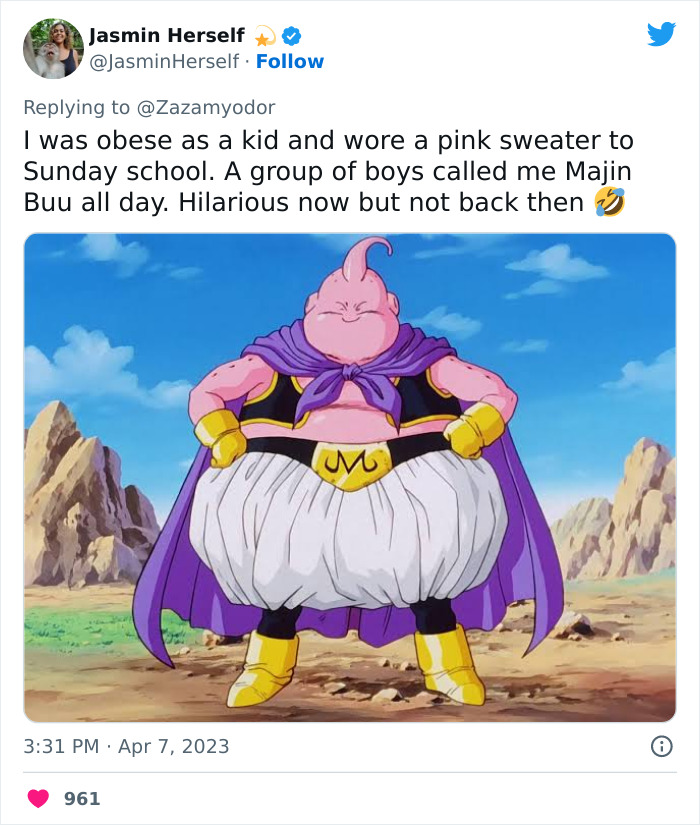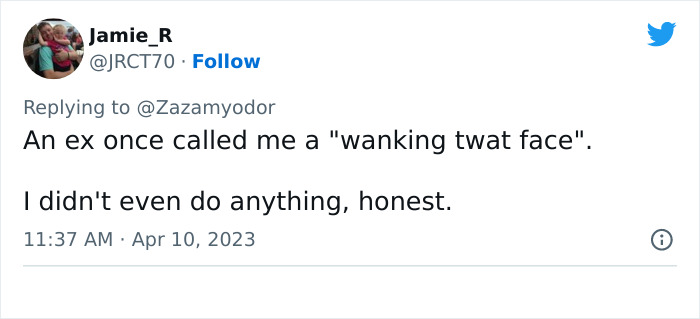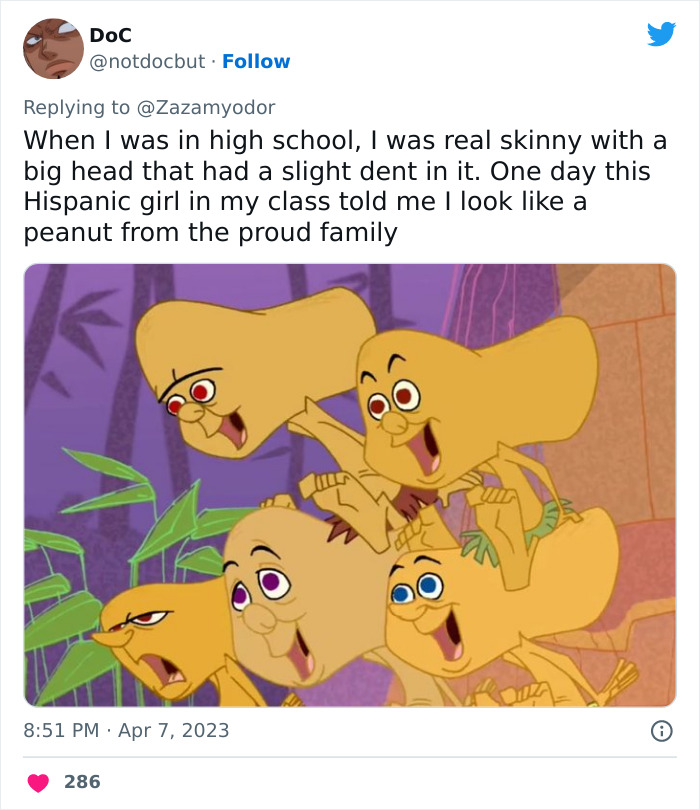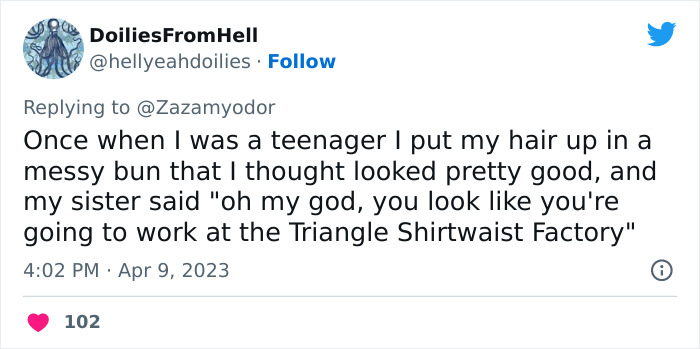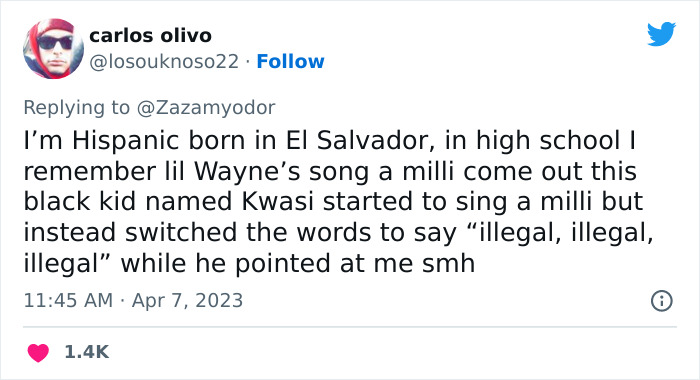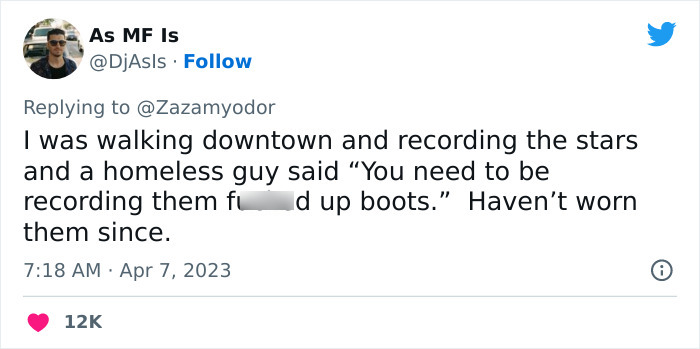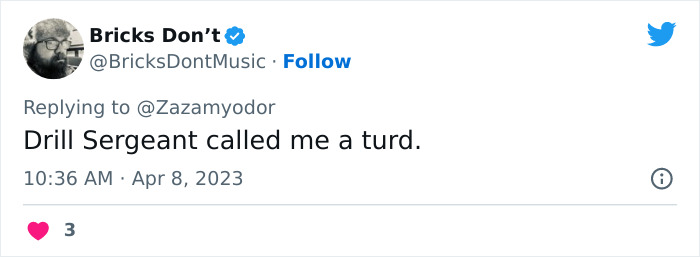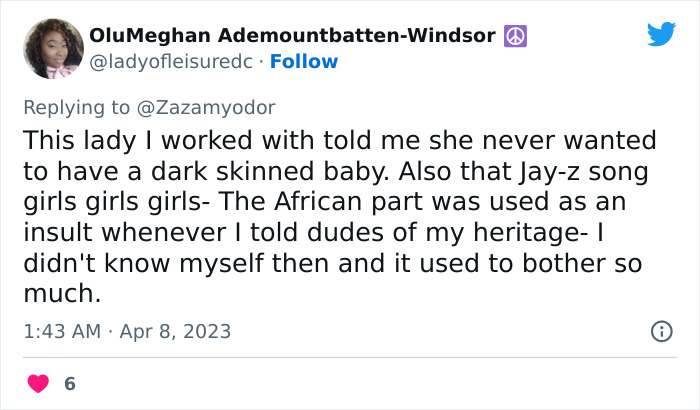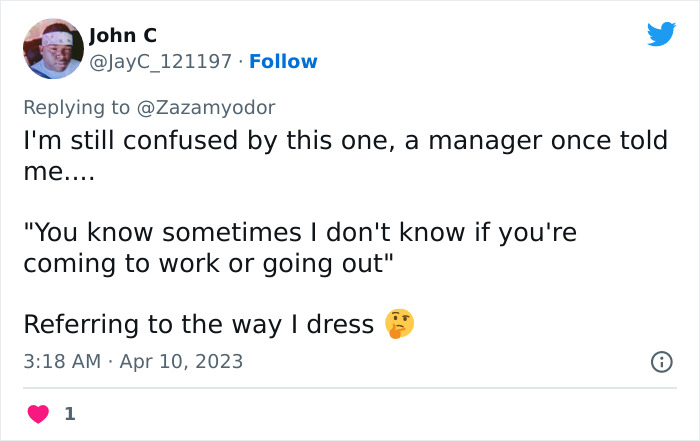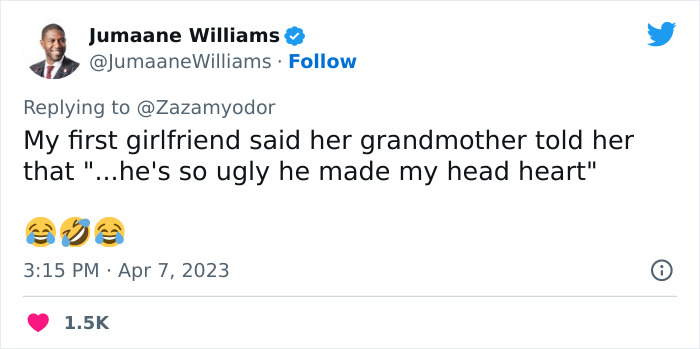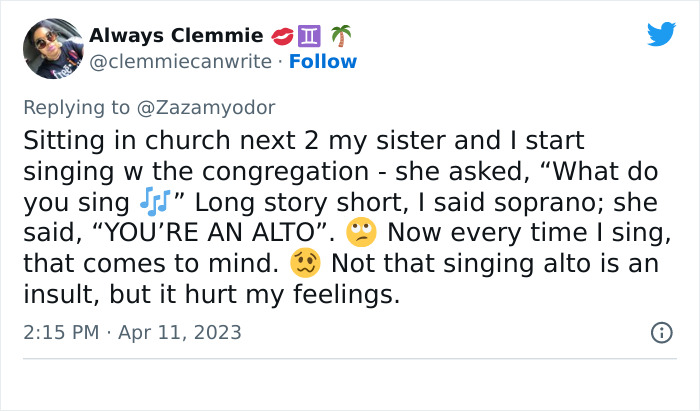Canadian poet William Chapman once said, “Words cut deeper than knives. A knife can be pulled out, words are embedded into our souls”. That rings true with every insult, and most of us can likely attest to that. Whether it’s bullying at school, uncalled-for remarks on the street, or other outbursts of people’s hostility, it’s nearly impossible to avoid it.
Some spiteful comments stick with the receiver for years, even decades after. This has been pointed out by Twitter’s community members, who have answered the user Zaza Man’s question: what’s an insult they’ll never forget. Their heart-wrenching answers show just how much damage a word can do; scroll down to find them and see for yourself.
In order to better understand the subtleties of how certain wording can affect a person and what drives someone to use insulting language, Bored Panda has reached out to the professor of rhetoric and linguistics at Soka University, James Williams, PhD. He was kind enough to answer a few of our questions; you will find the interview in the text below.
Image credits: Zazamyodor
This post may include affiliate links.
Professor of rhetoric and linguistics James Williams, PhD, explained how certain wording can influence a person: “Various studies have shown that positive thoughts and words have a powerful effect on the body, causing the brain to release endorphins and serotonin—hormones that reduce stress, relieve both physical and emotional pain, and produce a sense of well-being.
“Given that we are a highly social species, and given that living in groups, whether family-based or not, can result in difficulties and even conflict, there are incentives to use positive language when interacting with others,” he told Bored Panda.
“With good reason, many linguistic and psychological studies have explored the following question: If positive language results in positive thoughts and feelings, what are the effects of negative language? Various studies have found that negative language activates areas of the brain that are associated with mental distress and physical pain.”
Insults can have a long-lasting effect; it’s not just the moment you receive one that hurts. Quite a few examples on the list spoke about insults from years ago, which the receivers carry with them to this day. That reveals how deeply negative comments can ingrain into our brain.
Research reveals that hurtful words trigger sensations in our brain that can be compared to a “mini slap in the face”. By using electroencephalography (EEG) and skin conductance recordings, researchers determined that even under unnatural circumstances, such as a lab setting and no actual human interaction, insults have a strong negative effect on the receiver, which might not wear off even if repeated several times.
Leaving my grandma alone at supermarkets used to mean I would come back and she would have a new best friend who knew absolutely everything about my life
Who wouldn't want to look like a police sergeant in the Bahamas?? I WANT THAT SHIRT.
The fact that repeating insults doesn’t make them any less painful doesn’t sound all that surprising. In a way, when repeated, they become bullying, which, sadly, a lot of people have gone through at some point in their lives.
To make matters worse, it often happens at school, around the age young minds soak everything up like a sponge. Statistics show that one in five students aged 12 to 18 have experienced it. And kids can be surprisingly cruel when it comes to concocting some of the most painful word combinations.
While slavery is not comparable, I'm white so the comments I get from my mum is not at all comparable to your mum's comment, but my god they would get along our mums. Mine is awful for saying s****y things about my clothes, she does it to my sisters as well. Little comments like "oh wow that is such a lovely top, it's a shame you don't have the figure for it. It's been this way forever.
In an article for Psychology Today, clinical psychologist Barbara Greenberg pointed out that most people vividly remember their childhood bullies. She provided possible explanations for that, such as, for instance, the fact that the bullies confirmed certain negative aspects they were already aware of before. Or they might have destroyed the receiver’s safe zone or planted a seed of self-doubt.
It would be funnier if she kept looking back and forth between you and the pic
Another article in Psychology Today, written by Dr. Nigel Barber, pointed out that hurtful remarks are often motivated by anger that stems from insecurity about a certain status. Since a lot of insults are reactive, they might be evoked by real slights from people around the bully, as well as imaginative ones that are perceived as threats to their position.
Dr. James Williams pointed out that insults can negatively affect both sides of the far-from-pleasant conversation. “What should be understood is that this consequence affects both the target of negative language and the speaker. The more intensely the person uses negative language, the more agitated and angry he or she becomes through a psychophysiological feedback loop,” he told Bored Panda.
See, this is the kind of statement that I say to people all the time. It's funny as f**k and not really offensive, just strange.
That's nothing. A long time ago, a girlfriend took me ( a young man) to meet her parents. Straight away they said to her, 'Darling why didn't you tell us you were a lesbian?'
In Psychology Today, Dr. Nigel Barber also mentioned that a lot of hurtful rhetoric happens in the online world nowadays—it typically brings less consequences than it would in real life. According to Pew Research Center, as much as 25% of people have faced harassment online. It also pointed out that 75% of them experienced such troublesome situations over social media channels.
One of the reasons bitter internet users feel more at ease insulting others online is anonymity. Such keyboard warriors feel safe corresponding under their witty usernames, which shield them from consequences that might accompany harsh words said face to face.
“Some research has found that the anonymity that characterizes the internet automatically increases the aggressive linguistic behavior of participants,” professor of rhetoric and linguistics James Williams pointed out.
“The process is associated with what is called deindividuation—which is the breakdown of the social and inner constraints that inhibit anti-social behavior. Deindividuation exercises a powerful effect on the internet because even if users post their names on a given internet platform, the platform characteristics and the inability to link user names to known individuals increase anonymity and encourage aggressive behavior.”
To be fair, Rihanna has a huge forehead, so maybe this was a backhanded compliment
Pew Research Center revealed that the vast majority (86%) of internet users agree that the online world enables people to stay more anonymous than they would be in real life. Moreover, 93% of them believe that the online environment encourages users to be more critical compared to how they would be offline.
“Most platforms allow for anonymous participation, which strips the normal social restrictions and guidelines that regulate and control personal interactions in the real world,” Dr. Williams told Bored Panda. “Instead of facing consequences for unacceptable language, those who use graphic and abusive language on internet platforms are rewarded with a ‘like’ and the resulting feel-good serotonin.
“These rewards trigger the same oxytocin and dopamine receptors as positive language even though the linguistic reward is essentially negative. The result is a feedback loop: to generate more ‘likes’, participants are motivated to use increasingly negative language.”
Well at least you don't have two left feet - You'd be wearing 'flop flops.
Critique expressed in the form of insults can greatly disturb the receiver even if the slights seem minor (known as microaggressions) or indirect. Research carried out by Dr. Brea Banks revealed that repeated insults—often presented as backhanded compliments or implications—negatively affect the receiver’s cognitive abilities.
I once sat down on a park bench and someone just dropped money on me and said "buy some food with it"... truly says something about how I dress
Psychology Spot suggested that another reason why people insult others is their belief that the target is at fault for a certain unfavorable situation. Whether it’s something disappointing, infuriating, or causing other negative emotions, the annoyed ones express their discontent and relieve their bubbling emotions by spitting out hurtful words.
Psychology Spot also pointed out some of people’s main features that get insulted the most—uselessness, stupidity, moral depravity, and peculiarity.
It should not put you off light skinned girls, just bitches. The love of your life could be light skinned and you wouldn't look twice because of a s****y comment. X
Insulting others is rarely ever a good idea; however, if at any point you have to fight fire with fire, you can use this list to equip yourself with some colorful retorts. Or browse this collection of savage insults that can be disguised as compliments.
I once got told by a customer who I refused to serve "well you look like a lesbian and your hair is stupid" I laughed my a*s off as he was escorted out of the pub by security. For the record I refused service coz him and his mates were drunk and being incredibly rude to us staff
For the insults received by children from their parents: half the pain can be that it goes denied/unacknowledged. I know it's the case for me and some of my fellow pandas here. We don't need their confirmation (sure would be nice tho)
Some of these insults here can be soul-destroying. As someone who BUILT BACK her soul, I can tell each of you - it can be done. Be the person to yourself you wish others had been to you. Their blindness/rejection re person you are - as wonderful as you can be - is THEIR LOSS. No one can define you. YOU DEFINE YOURSELF. Take back your power. A bad a*s female JAG once wrote- and I repeat it over and over as I've never forgotten: "Blood is kin; Love makes family."
Load More Replies...I'm from MA but went to college in TX. I got a lot of "bless your heart" comments over those 4 years. It wasn't until I was safely back home for a decade or more that I discovered that it's an insult. 🤣
Aw, bless your heart. (To explain to others who may not know, it means, "Wow, you're clueless, aren't you?" As in, "Jesus has a special place in his heart for the mentally feeble and children, so you must be very special to Him.")
Load More Replies...I once got told by a customer who I refused to serve "well you look like a lesbian and your hair is stupid" I laughed my a*s off as he was escorted out of the pub by security. For the record I refused service coz him and his mates were drunk and being incredibly rude to us staff
For the insults received by children from their parents: half the pain can be that it goes denied/unacknowledged. I know it's the case for me and some of my fellow pandas here. We don't need their confirmation (sure would be nice tho)
Some of these insults here can be soul-destroying. As someone who BUILT BACK her soul, I can tell each of you - it can be done. Be the person to yourself you wish others had been to you. Their blindness/rejection re person you are - as wonderful as you can be - is THEIR LOSS. No one can define you. YOU DEFINE YOURSELF. Take back your power. A bad a*s female JAG once wrote- and I repeat it over and over as I've never forgotten: "Blood is kin; Love makes family."
Load More Replies...I'm from MA but went to college in TX. I got a lot of "bless your heart" comments over those 4 years. It wasn't until I was safely back home for a decade or more that I discovered that it's an insult. 🤣
Aw, bless your heart. (To explain to others who may not know, it means, "Wow, you're clueless, aren't you?" As in, "Jesus has a special place in his heart for the mentally feeble and children, so you must be very special to Him.")
Load More Replies...
 Dark Mode
Dark Mode  No fees, cancel anytime
No fees, cancel anytime 




